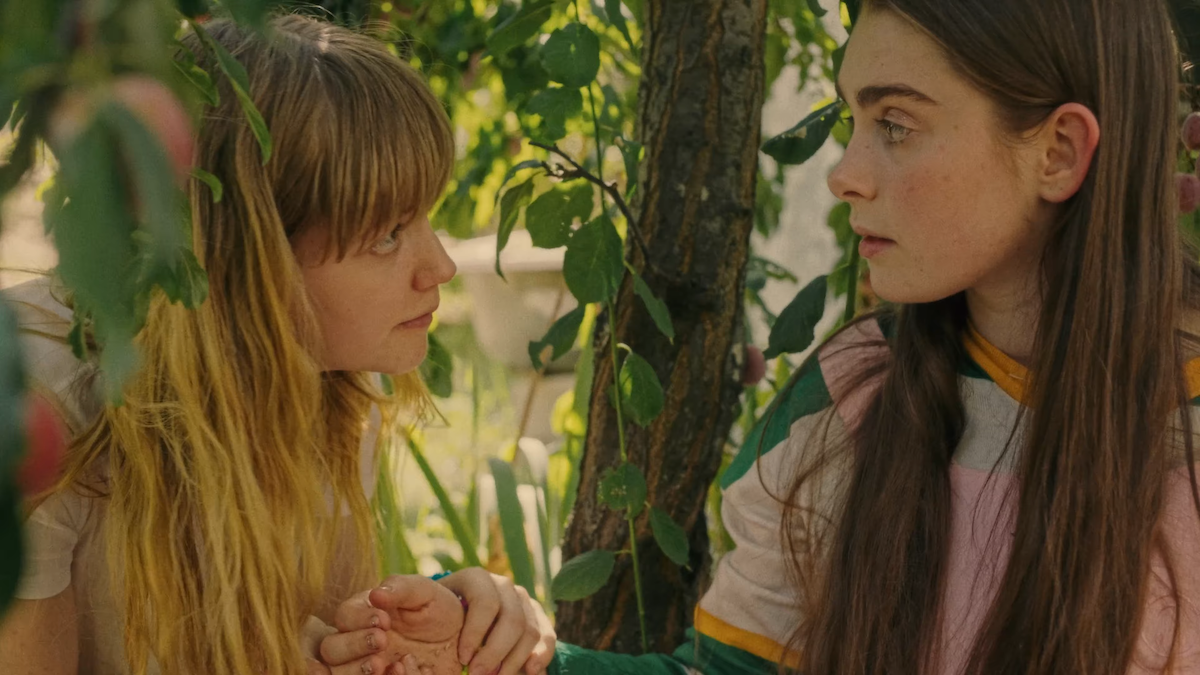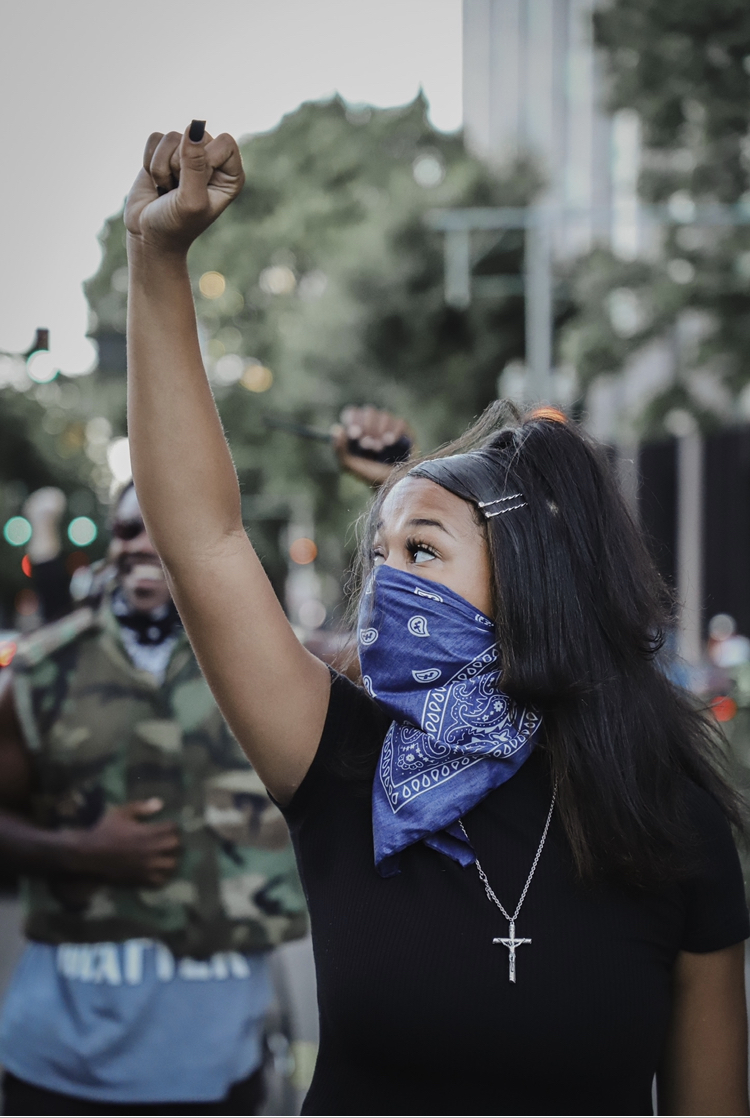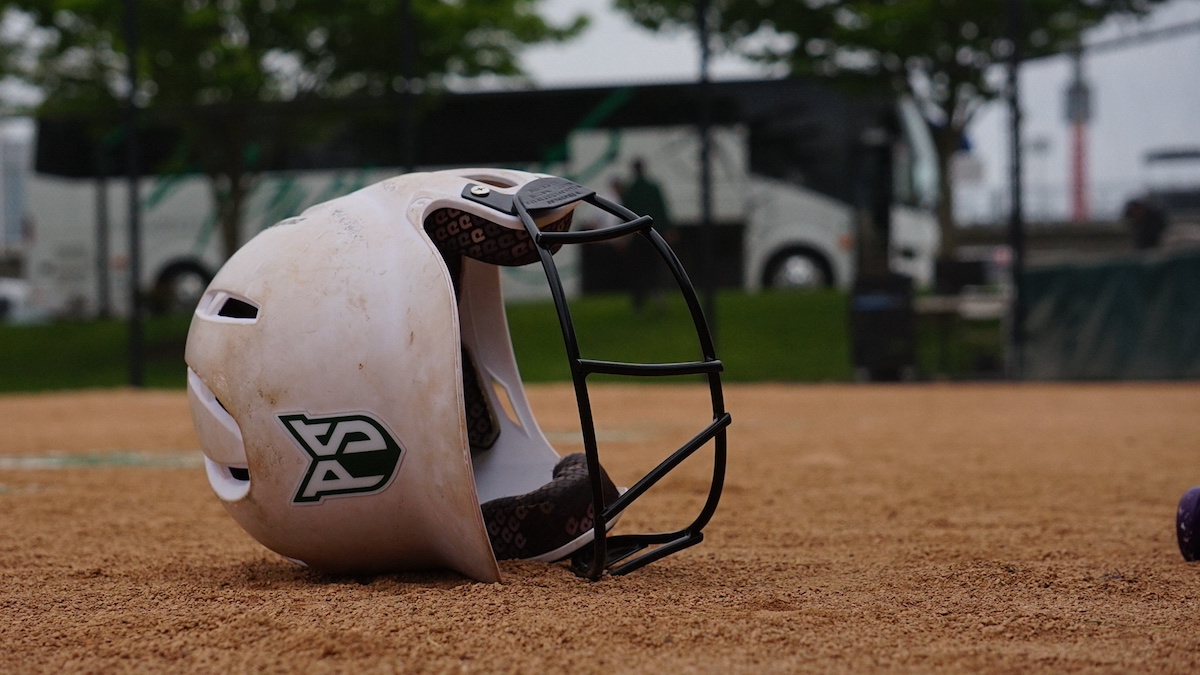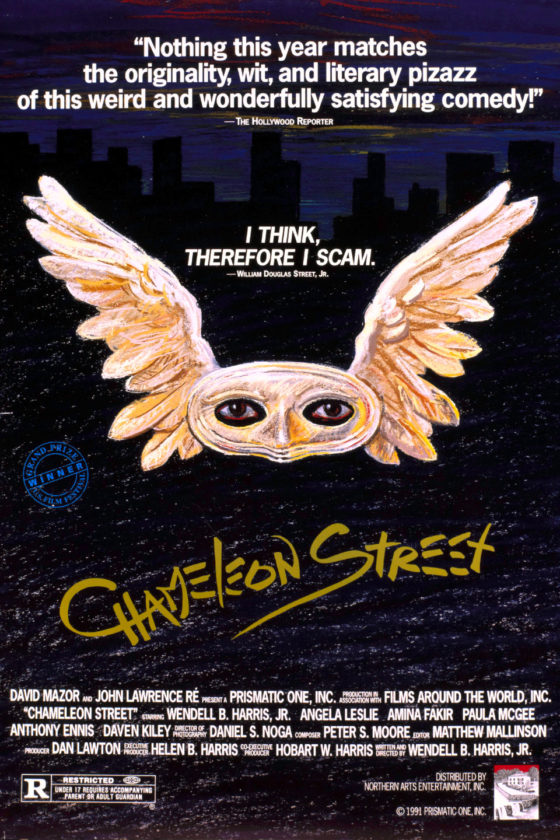Portland’s annual queer documentary film festival QDoc was postponed for the second year in a row, due to the continuing COVID-19 pandemic. Instead of cancelling the festival altogether, the directors of QDoc teamed up with Pride Northwest for a two-day showing of LGBTQ-themed shorts and features as part of the first ever Pride Pics festival in Portland. The festival was held at the outdoor venue The Lot at Zidell Yards across June 16 and 17, with three fiction features and three documentaries projected outside amidst the baking sun and gravel backdrop of Zidell Yards.
One of the first showings of the festival was the Australian coming-of-age romance film My First Summer, directed by Katie Found, who introduced the film beforehand. My First Summer first debuted in Adelaide, Australia last Oct., but this showing was the first in the Pacific Northwest. The film tells the tale of two girls: Grace, a rebellious but free-spirited idealist; and Claudia, a stoic and socially-isolated girl beset with grief after her mother, a famous author, commits suicide by drowning herself in a local reservoir. Claudia is left parentless and hides in her house in the woods to avoid being taken away by the police. Grace, having been present at the reservoir at the night of the incident, finds Claudia in the woods, bringing the two together, with Grace helping rehabilitate Claudia by introducing her gradually to the outside world.
Found’s direction focuses solely on the relationship between Grace and Claudia, isolating them from a world of adulthood and exterior perceptions. Ideally, this focus would allow the story to flourish in a depiction of youthful energy and blooming romance, but the stereotypical characterization of the film’s two leads results in this magnification feeling all too myopic.
Arguably, the linchpin problem of My First Summer is that Grace and Claudia’s personalities only exist to bounce off of each other. Claudia’s depressive stock personality makes Grace feel like a lesbian manic pixie dream girl, whose sole purpose throughout the course of the film is to awaken Claudia to the supposed wonders of life. Despite being only 78 minutes long, the film blithely flounders and dances around any notions or depictions of love and romance, taking over an hour before any form of concrete affection becomes visible. By that point, the movie is practically over, leaving behind a destitute shell of incomplete—but not unrequited—feelings.
Structurally, the story falls too often into overplayed tropes. You’ve seen this movie before, even if not by name—you’ve seen the manic whiplash and reactionary beats, the hamfisted themes of ailing grief, and the tried-and-failed character conflict that is interjected into the story only at the most potentially melodramatic moments. The lack of any palpable sense of sensuality or romance conjures a tepid, disconnected and barely palatable coming-of-age story that feels more like Life is Strange than it does like Heavenly Creatures.
Additionally, the focus on grief and suicide marks My First Summer as yet another lesbian romance film with a borderline obsessive fetishism of grief and pain. There’s no thesis to these notions, and the film struggles to find a place for them amidst the residual scraps of a supposedly blossoming romance. Every time the story attempts to consult or consider heavy themes, the execution always feels heady, shattering the moment and washing away whatever consistency was previously present.
Found attempts to use narration to explore themes of grief and sadness outside of the discrete aspects of the story, with moments of Claudia and Grace waxing poetic through restrained whispers over the beautifully-photographed Australian landscape. These phantasmagoric musings would be perfectly in place in a Malick film, but the inconsistent usage of narration paired with the childlike and naive nature of the film results in a creative dissonance. Combine that with excessively hokey needle drops, and you’ve got yourself a recipe for a film that feels almost creatively opposed to itself.
Indeed, My First Summer feels like a film split into halves and parts, torn and tugged into different directions, stuck at a crossroads with no clear path to follow. By the time the credits roll, you’re left with an undercooked and underwhelming coming-of-age romance, stranded by the road in the middle of the Australian desert.






